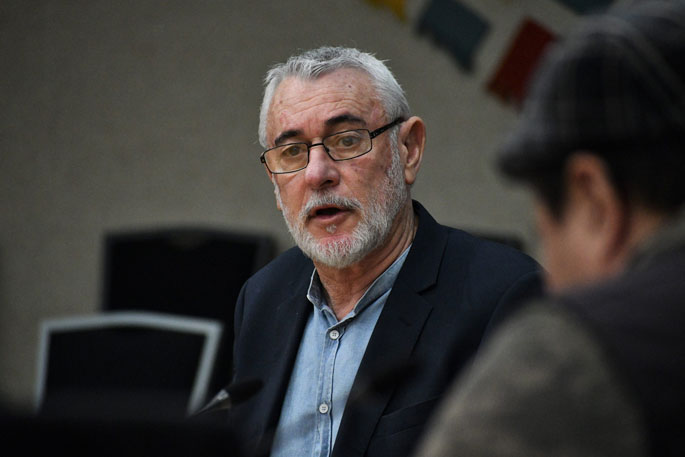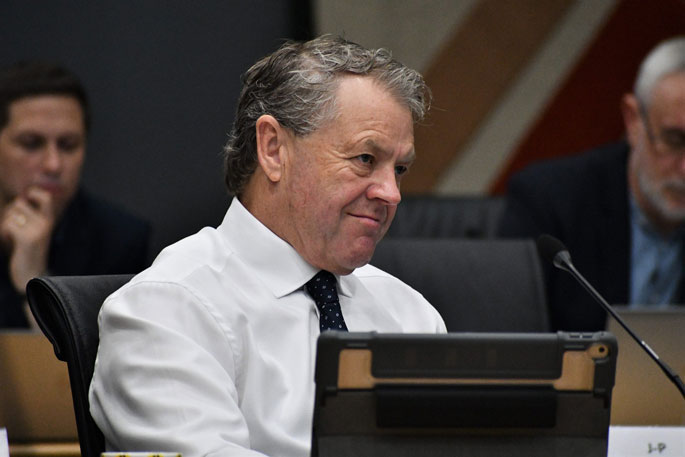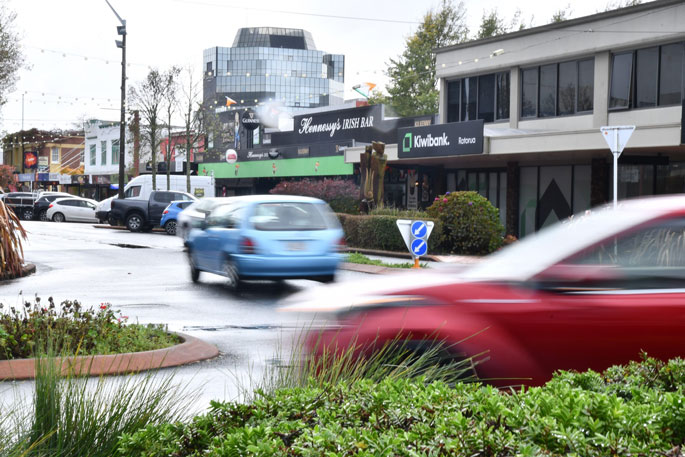A government-directed speed limit review that could make 75 per cent of Rotorua urban streets 30km/h is 'flat-out dumb” and an example of 'overreach”, councillors say.
Rotorua Lakes Council is required under new legislation to develop a 10-year Speed Management Plan that addresses safe and appropriate speed limits.
Elected members voted on Wednesday to consult the public on proposed changes.
The council's preferred option was to set urban connector roads at 50km/h and local streets, roads outside schools and in the CBD at 30km/h. All options set the limit at 30km/h around schools and the CBD.
The council was required to define 'road/s outside a school”, according to a report presented in the meeting.
These could include key access corridors, to help make 'active travel” routes safer and encourage more families to use them - as recommended under the national framework.
Council staff found that if a radius of 1km around schools was used, it would mean more than 75 per cent of the city's urban network would be 30km/h.
Council environmental health performance manager Niki Carling said the 1km radius was not the smallest it could be but was internationally recognised as a manageable walking distance for children.
The council needed to implement recommended safer speed limits around at least 40 per cent of schools on district roads by June 2024, and the rest by December 2027.
 Infrastructure and environmental solutions deputy chief executive Stavros Michael. Photo / Laura Smith.
Infrastructure and environmental solutions deputy chief executive Stavros Michael. Photo / Laura Smith.
Infrastructure and environmental solutions deputy chief executive Stavros Michael told elected members that, in Rotorua, 20 per cent of crashes were attributed to speed.
It was estimated the social cost of this was $62 million.
Waka Kotahi – NZ Transport Agency data indicated speeding contributed to about 60 per cent of fatal crashes and 71 per cent of injury crashes nationally.
Councillor Gregg Brown asked if the council would be doing the work if not directed by a National Policy Statement for Land Transport.
Michael said speed reviews were constantly undertaken and the council set limits consistent with guidelines. But what was now required was 'unique”.
Brown said Waka Kotahi had identified the main cause of fatal crashes was drivers speeding. Therefore, in his view, there was a 'disconnect in the logic”.
'I think this is flat-out dumb, but we've got to do it. Go through the process.”
 Rotorua councillor Gregg Brown. Photo / Laura Smith.
Rotorua councillor Gregg Brown. Photo / Laura Smith.
Councillors Don Paterson and Rawiri Waru agreed.
Paterson wondered how it would be enforced, and noted other causes of crashes were impairment and distraction.
'They are not going to be paying attention to the speed limit.”
Waru said the council was bound by law and had 'no choice in the matter”.
He said expected the public to 'come back strong” on the proposals.
'Put your kōrero in”.
Councillor Robert Lee argued it would not be reasonable to impose a 30km/h limit in a 1km radius around schools, and it would 'amount to the theft of our time”.
In his view, it was 'government overreach in a classical fashion”.
Councillor Conan O'Brien said he had some concerns but generally supported reducing speeds around schools and the CBD.
Mayor Tania Tapsell asked if it could provide feedback to the Government, 'that perhaps fixing roads and ensuring public assets are safer would be more beneficial investment of time and resources than messing with some speed limits”.
Michael said he believed the council could put whatever it wanted in its submission.
He said consultation in Rotorua and 67 other New Zealand communities would 'generate a significant body of opinion”.
'Then, hopefully, a number of things might be reconsidered and modified. If we don't go for consultation you don't have the weight of public opinion explained in the submission.”
Responding to the comments after the meeting, a spokeswoman for Transport Minister Michael Wood told Local Democracy Reporting the Government's Road to Zero vision had an initial target of reducing deaths and serious injuries on the roads by 40 per cent by 2030.
This would require improvements to all parts of the transport system including 'safer speeds”.
She said the previous approach had not been working, and 378 people died on New Zealand roads last year. This was at a 'much higher rate” than comparable countries.
'We need to stop accepting that deaths on our roads are inevitable.
'Each death is a person who leaves behind a family, a workplace, a community. They are not simply a toll that we pay when we decide to turn the key.”
She said the Government had made significant investments in road safety and maintenance. About $6.5 billion was for safety-related benefits.
'Speed affects the severity of all crashes. Even when speed doesn't cause the crash, it's what will most likely determine whether anyone is killed, injured, or walks away unharmed from that crash.”
Councillors O'Brien, Lee and Paterson voted against going to consultation and other recommendations.
Community consultation was proposed to run from July 17 to August 18.
After consultation, the Speed Management Plan will be considered by the Regional Transport Committee.
Public feedback will be sought on a draft consolidated regional speed management plan by the Bay of Plenty Regional Council before the final plan is submitted to Waka Kotahi for approval.
- Public Interest Journalism funded through NZ on Air.




0 comments
Leave a Comment
You must be logged in to make a comment.